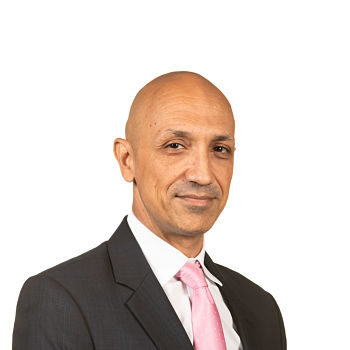More than two thirds of men in the UAE may be putting themselves at risk for advanced prostate and testicular cancers by not knowing the symptoms of the disease and failing to schedule an annual checkup with their doctor, a new study shows.
A survey of 1,000 people living in the UAE, commissioned by Cleveland Clinic Abu Dhabi, part of Mubadala Healthcare’s network, found that 62 percent men did not know or were unsure about the common risk factors for prostate cancer
. The survey, which is part of the hospital’s annual men’s health campaign ‘MENtion It’, found that about 79 percent said that they did not know how to conduct a testicular cancer self-exam.
A surprisingly high number of men, 62 percent, admitted that they do not schedule an annual checkup with their doctor, with 28 percent claiming they were too busy to see one and 22 percent said they were too fearful to visit their physician.
When sick or in pain, only 31 percent said that they would seek medical advice immediately, while 29 percent would wait as long as possible to see if they felt better and 15 percent would look for solutions online.
 “Prostate cancer is the second most common cancer in men worldwide, while testicular cancer is the most common malignancy among men 20 to 40 years old. Too many men are unaware of the health risks they face and the actions they should be taking to ensure they have the best quality of life,” says Dr. Waleed A. Hassen, the Department Chair of Urology in the Surgical Subspecialties Institute at Cleveland Clinic Abu Dhabi.
“Prostate cancer is the second most common cancer in men worldwide, while testicular cancer is the most common malignancy among men 20 to 40 years old. Too many men are unaware of the health risks they face and the actions they should be taking to ensure they have the best quality of life,” says Dr. Waleed A. Hassen, the Department Chair of Urology in the Surgical Subspecialties Institute at Cleveland Clinic Abu Dhabi.
Dr. Hassen says the survey highlights a gap in community awareness about common and curable cancers that affect men.
“One of the challenges that we face is that prostate cancer is considered a disease of ageing, which is not the case, and is also one of the most asymptomatic cancers. So, it is not considered a threat. This means we typically only see patients at a very advanced stage. We encourage men to start scheduling routine check-ups with their urologist from the age of 40 and pay attention to even the slightest change in urination patterns or pain.”
According to the American Cancer Society, discussions of screening for prostate cancer should start at age 50 for men at an average risk. Patients should consider getting a check-up earlier if there are symptoms, including the inability to urinate and pain or blood during urination, or risk factors like lifestyle and a family history of the disease. Screening includes a clinical exam, a prostate-specific antigen (PSA) blood test, and a sonogram.
The five-year survival rate for most men with local or regional prostate cancer is nearly 100 percent. This drops to 31 percent if the cancer has spread to other parts of the body.
“When it comes to testicular cancer, all men should conduct a monthly self-exam upon reaching puberty to note any changes or lumps as this is important for early detection. This must also be part of a patient’s annual physical exam with their doctor,” explains Dr. Hassen.
Men surveyed for the study said that they were less likely to discuss urological issues with their doctor with only 29 percent agreeing to being comfortable doing so in comparison to other health issues, including heart health (50 percent), respiratory health (43 percent), mental health (39 percent) and general wellness (69 percent).
A total of 62 percent survey respondents also reported a spike in their stress levels owing to the COVID-19 pandemic this year but claimed an overall high level of physical (74 percent) and mental wellbeing (71 percent). About 42 percent even said that they feel healthier than last year and 39 percent said that they had not seen a change at all.
“High stress only makes underlying health conditions worse. If people are not scheduling routine checkups with their doctor, there is no way to fully determine how this may be affecting their physical and mental wellbeing,” says Dr. Hassen.
“Often psychological issues in men can contribute to an increased risk of prostate cancer, erectile dysfunction, infertility and urinary incontinence. So, we urge men to talk and share their health concerns and avoid delaying doctor visits.”
Cleveland Clinic Abu Dhabi is encouraging men who have health concerns to ‘MENtion It’ to a doctor. The hospital’s annual campaign is aimed at getting men to break the silence about their health and get regular check-ups, helping them detect health problems before they lead to further complications.
To find out more about men’s health challenges and how to approach them, visit mention-it.clevelandclinicabudhabi.ae. For more information or to book an appointment at Cleveland Clinic Abu Dhabi, call 800 8 CCAD (2223), visit www.clevelandclinicabudhabi.ae or download the Cleveland Clinic Abu Dhabi app.
Let us help you book an appointment at Cleveland Clinic Abu Dhabi.